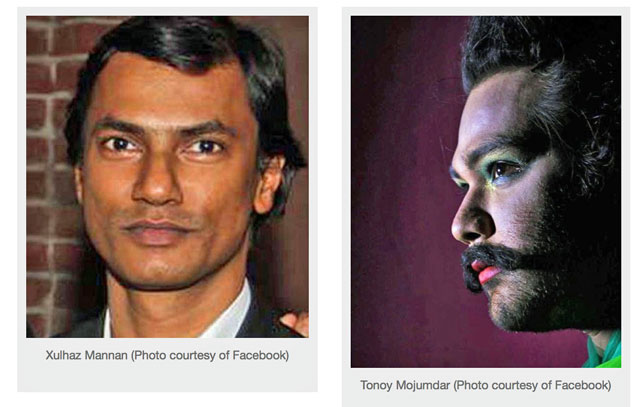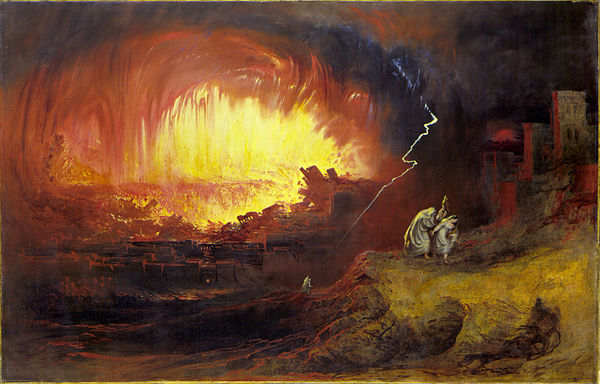Bangladesh, repeal our repressive anti-LGBTI law
Colin Stewart is a 45-year journalism veteran living in Southern…
London-based Bangladeshi gay rights activist Riaz Osmani today issued this statement seeking the repeal of Bangladesh’s anti-LGBTI law, Section 377 of the Penal Code. That law provides for life imprisonment for anyone who engages in “carnal intercourse against the order of nature,” which the law defines as involving penetration other than heterosexual intercourse.
Osmani has offered the statement to Bangladeshi newspapers, he says, but they have shied away from publishing it. There have been death threats against one of them that published pro-LGBT articles in the past. Similarly, among public officials and members of civil-society organizations, no one is willing to touch the issue under the current climate. “Everyone wants us to be quiet for now,” he says, “but that is simply not an option.”

Penal Code 377 – The Bane of Bangladesh’s LGBTQI Population
According to surveys, 5 to 10 % of the world’s population belong to the LGBTQI category (Lesbian, Gay, Bisexual, Transgender, Queer, Inter-sex). The first two feel sexual and emotional attraction towards people of the same gender, not the opposite as is the social norm. Bangladesh is no exception to this and there are numerous such people who live clandestine lives, away from the limelight of family, friends and society. Many of them live double lives by entering sham marriages with the opposite gender to save face with family and society. Such marriages do irreparable damage to both parties involved since they are not based on love or intimacy.

After the murder of gay rights activist Xulhaz and gay cultural activist Tonoy by Islamic militants earlier this year, gays in Bangladesh are now in hiding, fearful of their lives. Those who are able to are leaving the country. This is a sorry state of affairs and needs to change soon.
First thing to aid this change will be a bit of education. People never choose their sexuality. Homosexuals are born with their sexuality that they discover after puberty in the same way heterosexuals do. Nobody makes this choice. There is no choice here. Moreover, it is never possible for someone to change their sexuality. This means a gay person cannot be turned straight (heterosexual) by any means. Likewise, a heterosexual person cannot be turned gay (homosexual) by any means. Young boys and girls cannot be influenced by other homosexuals to become gay. Nobody becomes gay upon puberty. The sexuality is determined at a much earlier stage.
The American Psychological Association (along with other equivalents in the Western world and in India) have long ago determined that homosexuality is in no way a mental disorder or illness. It is a perfectly normal sexual orientation or expression for a small percentage of the world’s population. Any attempt at changing this through therapy, religious teachings, physical and mental abuse have proven totally ineffective and have often led to depression and suicidal tendencies among those being tried to be converted.
The Western world has finally come to terms with these realities and has removed all laws that make criminals out of homosexuals, discriminate against them and prevent them from marrying the person they love.
It is high time that Bangladesh repeals laws in the country that make criminals out of her LGBTQI population. Interestingly enough, the main item of Bangladesh’s penal code that is used to maintain this criminality was not necessarily intended for that purpose. This item is the Victorian era Penal Code 377 that Bangladesh (along with India, Pakistan and other former British colonies) inherited when they became independent nations. This code states the following:
“Whoever voluntarily has carnal intercourse against the order of nature with any man, woman or animal, shall be punished with imprisonment for life, or with imprisonment of either description for a term which may extend to ten years, and shall also be liable to fine.”
Victorians had strange notions about sexual behaviour and this code was instituted throughout their empire to prevent any sexual act by any two people (or a person and an animal) that did not result in human procreation. This meant that if a man and woman engaged in various sexual acts other than that which resulted in procreation, they would be deemed as criminals. This also meant that any sexual acts by homosexuals were criminal offenses. But the second one was an unintended consequence. The main purpose was to make sure all sexual activity was for the purpose of procreation.
There is no point in blaming the British for this ridiculous legal intrusion into people’s personal affairs today. We have been independent long enough to take care of our own affairs and the British have long removed their equivalent from their statute books. According to the Bangladesh Constitution:
“27. Equality before law: All citizens are equal before law and are entitled to equal protection of law. 28. Discrimination on grounds of religion, etc. (1) The State shall not discriminate against any citizen on grounds only of religion, race, caste, sex or place of birth….”.
As has been done in the legal challenge to 377 in India, the clause above needs to include sexual orientation. I am asking for such a legal challenge to Bangladesh’s 377 since it violates the spirit of the country’s constitution. Under no circumstances must gays in Bangladesh be automatically deemed criminals by virtue of 377.
In the current climate, where Islamic militants are openly killing homosexuals and have advocated more such killings on the internet, it is not possible for a fearful person to seek police protection if under threat for being a homosexual. The said person is liable to face police arrest and/or harassment and possibly rape. Removal of this ghastly legal absurdity will at least allow room for gays in Bangladesh to seek protection.
This brings me on to my next point and that is the role of religion (Islam in particular) in public life. The gay rights movement in Bangladesh will hit a brick wall (if it hasn’t already) as long as the politicians, civil society members and most importantly the religious community invoke Islam as the main barrier to repealing penal code 377 and granting homosexuals equal status in the eyes of the law.
While most Muslims and people of other faiths steadfastly maintain that their faith is absolutely against homosexuals and that the latter deserves to be persecuted, most will draw blanks if asked to quote actual references from scriptures that promote this point of view.

The quote often given is that of the story of Lut (Lot) in the Quran and Bible where God supposedly destroyed a town for sodomy, i.e. homosexual acts. This is the only thing that is attributed to attitudes towards homosexuals. There is however a debate about the meaning of the story. Some researchers of Islam in the West have argued that this story did not have anything to do with consensual sexual acts between two adult homosexuals but was about male rape.
I will not venture into this argument because from my point of view, it belongs in religious academia, not in a country’s legal system, especially a system that has been defined by common law.
Moreover, since Bangladesh is a secular country (although in name only) where people of different faiths enjoy equal status (except for the anomaly of Islam still being the state religion), there must be room for people of no faith or homosexuals who may or may not subscribe any faith.
As long as Bangladesh is not an Islamic Republic, religious beliefs cannot be used to criminalise, marginalise and persecute homosexuals. While social acceptance may come at a much later date, the country’s politicians and lawyers must have the foresight and courage to change the laws ahead of such social acceptance. Sodomy laws in the West were repealed much earlier than their societies were willing to accept homosexuals as equals.
Bangladesh will not be the first Muslim majority country to remove laws that criminalise homosexuals. Other such countries are Turkey, Mali, Albania, Bahrain, Jordan, Iraq, Palestine (West Bank only) and Indonesia (minus Aceh). It is noteworthy that none of these countries were directly colonised by the British and hence did not inherit the Victorian penal code. But as I have already mentioned, our own countries are our own affairs and it is about time we correct this inhuman state regarding the status of the LGBTQI population. The civil society must also be on full guard not to allow Bangladesh to be turned into an Islamic Republic.
Related articles:
- Two LGBT activists murdered in Bangladesh (April 25, 2016, 76crimes.com)
- Media disagree on role of Bangladeshi murder suspect (May 2016, 76crimes.com)
- Bangladesh: Man held over murders of LGBT activists (May 2016, BBC)
- Four arrests of LGBT activists at Bangladesh celebration (April 14, 2016, 76crimes.com)
- First third-gender person seeks Bangladesh public office (December 2015, 76crimes.com)
- Anti-gay Bangladesh protests target Nobel Prize winner (December 2014, 76crimes.com)
- Bangladesh survey finds homosexuals live in fear (December 2014, 76crimes.com)
- Bangladesh newspaper urges repeal of anti-gay law (August 2013, 76crimes.com)
- Bangladesh: Lesbian couple arrested, risks life in jail (July 2013, 76crimes.com)
- Archive of this blog’s articles about Bangladesh



Seeking LGBTI rights in Trinidad, finding them in Canada